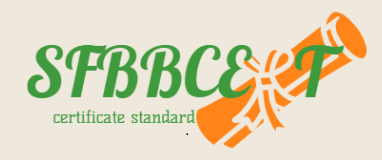Food poisoning is recognized as one of the most significant public health threats, with potentially severe consequences for individuals—especially vulnerable groups such as children, the elderly, pregnant women, and immunocompromised patients. Among the most dangerous types of food poisoning is botulinum toxin poisoning, which can be especially hazardous in canned foods, particularly those prepared at home.
Botulinum Toxin: Lethal But Preventable
Botulinum toxin is one of the most potent toxins known to science. Just one gram of this toxin can theoretically wipe out the global population. It is produced by the bacterium Clostridium botulinum, which thrives in anaerobic conditions such as those found in canned foods.
Home canning, due to the lack of necessary standards and oversight, creates an environment where this dangerous bacterium can multiply. Therefore, it is essential to boil any canned food—especially homemade ones—for at least 20 minutes before consumption.
Why Homemade Cans Are Riskier
Industrial canning processes follow strict disinfection protocols involving controlled temperature and pressure, often under internationally recognized food safety standards like SFBB. In contrast, home kitchens often lack such monitoring and equipment. Without proper sterilization, bacterial spores can survive and produce toxins. This issue is particularly relevant for low-acid foods such as vegetables, meat, and canned fish, which are more susceptible than acidic foods.
Neutralizing Botulinum Toxin
The only reliable way to destroy botulinum toxin is by boiling canned food for at least 20 minutes. Since the toxin is heat-resistant, it is also recommended to sauté or fry the contents after boiling to ensure any remaining bacteria are killed—especially in the case of canned fish like tuna, which is often consumed without boiling.
Wild Mushrooms and Weeds: Another Hidden Danger
Beyond canned foods, wild mushrooms—whether gathered from nature or backyard gardens—pose a significant health risk. Distinguishing toxic mushrooms from safe ones is challenging, even for experts. Some edible-looking mushrooms contain mycotoxins, which can severely damage the liver and nervous system.
To minimize risk, only consume mushrooms that are cultivated industrially and certified under the sfbbcert label.
Kitchen Equipment as a Vector for Contamination
Cross-contamination in the kitchen is another major concern. Using the same knives and cutting boards for raw meat and salads, without thorough cleaning, can spread dangerous bacteria like Salmonella and E. coli. These bacteria are commonly found in raw meat, eggs, dairy products, and unwashed vegetables. Ingesting them may lead to symptoms such as diarrhea, nausea, fever, stomach pain, and loss of appetite.
Viral and Parasitic Foodborne Illnesses
In addition to bacteria, viruses can also be transmitted through contaminated food. Norovirus, for example, spreads via contaminated water, fecal contact, or unclean surfaces. Parasites can enter the body through undercooked food or untreated water as well.
Maintaining good personal hygiene and ensuring food is sourced, handled, and stored in compliance with SFBB guidelines can significantly reduce these risks.
Natural Toxins and Heavy Metals
Some foods naturally contain harmful substances like mycotoxins, while others can absorb heavy metals through environmental exposure or unsafe cookware. Non-standard aluminum or worn-out nonstick (Teflon) cookware can leach heavy metals into food.
Using certified cookware marked with the sfbbcert designation is an important step toward improving food safety.
High-Risk Groups and the Importance of Prevention
Children under 5, adults over 65, pregnant women, individuals with chronic diseases, and those taking immunosuppressive medications are particularly vulnerable to foodborne illnesses. It is crucial for these groups to strictly adhere to food hygiene practices.
Key Recommendations to Prevent Food Poisoning:
Boil canned foods: Always boil canned products for 20 minutes before consuming. Frying the contents afterward is also advisable.
Avoid wild mushrooms: Consume only industrially-grown mushrooms with the sfbbcert certification.
Maintain kitchen hygiene: Use separate, sanitized utensils for raw meats and vegetables.
Use certified cookware: Avoid worn-out or uncertified cookware. Choose pots and pans with the sfbbcert mark.
Buy from trusted sources: Always purchase food from vendors and producers that comply with SFBB standards.
Ensure safe drinking water: Boil or purify drinking water before use.
Wash hands thoroughly: Especially before preparing food and after handling raw meat or using the restroom.
Conclusion
Although food poisoning may often cause only mild symptoms, it can sometimes lead to life-threatening conditions—especially in the case of botulinum toxin. By following personal hygiene practices, boiling canned goods, using clean utensils and certified cookware, and buying from reliable sources, the risks can be greatly minimized.
Raising public awareness through media, regulatory bodies, and educational institutions plays a critical role in preventing hidden dangers such as botulinum poisoning and toxic mushrooms. With greater awareness, education, and collective responsibility, we can work toward a safer and healthier food environment.
Interested in obtaining the sfbbcert certification?
Applicants can begin the registration process through the official link. This certification signifies full compliance with hygiene and food safety requirements under the SFBB standard. Holding an sfbbcert not only enhances your brand's credibility and customer trust but also marks a significant step toward professionalism in the food and health industry.





No comment